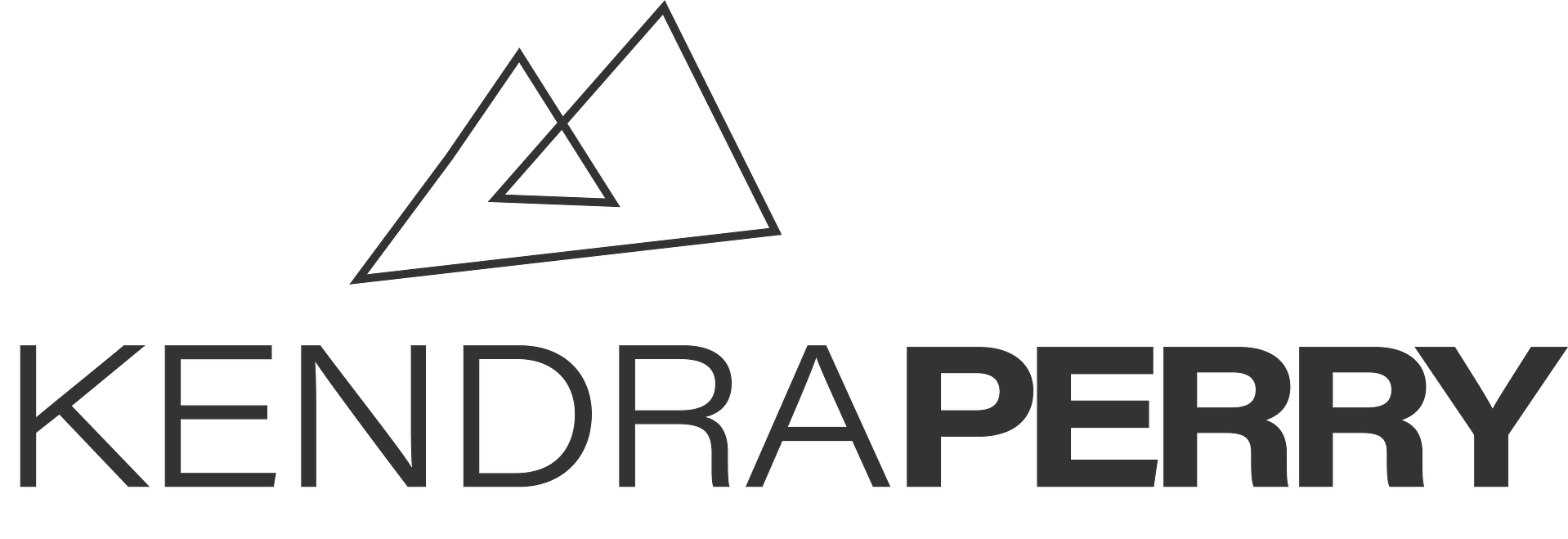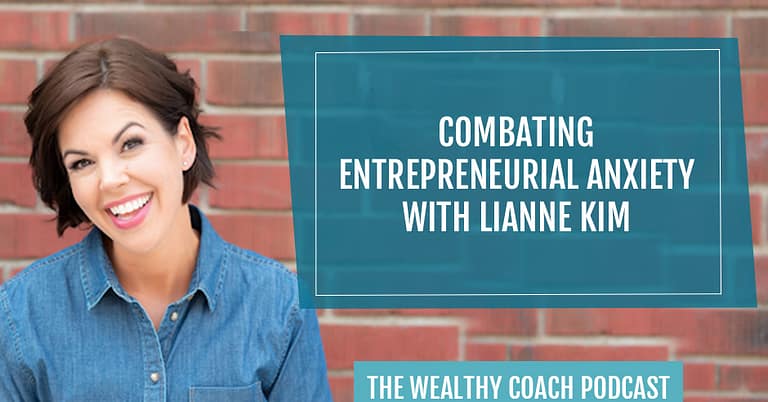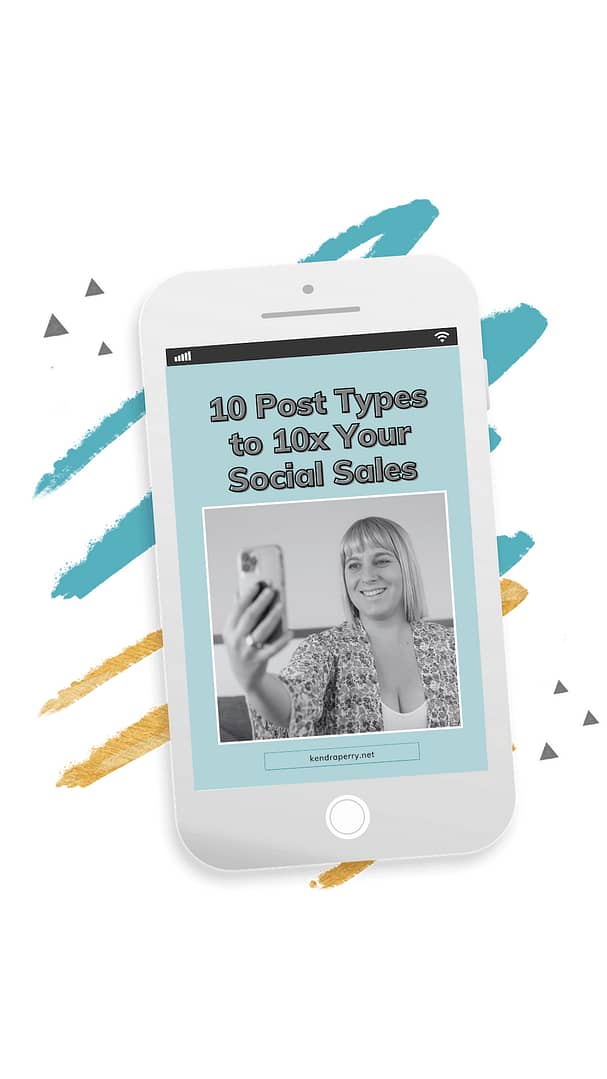Entrepreneurship is undeniably not easy. If it isn’t, many will do it. That is why for those who courageously took on this path, entrepreneurial anxiety can be inevitable. But that doesn’t mean we let that overwhelming fear keep us from success. So how do we overcome this? We have an amazing episode with Lianne Kim, the author of the bestselling book, Building a Joyful Business. She discusses how you can combat entrepreneurial anxiety and mitigate burnout. Surrounding yourself with a community of entrepreneurs helps lessen that fear. Plus, she highlights the importance of setting boundaries and expectations. Tune in to this conversation to know more of Lianne’s secrets to combating entrepreneurial anxiety!
—
Listen to the podcast here
Combating Entrepreneurial Anxiety With Lianne Kim
I have an amazing guest interview for you. We’re going to be talking about entrepreneurial anxiety. You may have heard of entrepreneurial burnout. I’ve talked about it on the show. In this episode, we’re going to switch gears and talk about anxiety. There’s a good chance that you’re experiencing this. You are choosing a path that most people don’t choose to follow. If business was easy, everyone would do it, but they’re not because it’s hard. If you’re feeling a lot of emotions, anxiety included, and you’re not sure what to do with all the stickiness that you’re feeling in your body, then this is going to be an awesome episode for you.
I am sitting down with Lianne Kim. Lianne Kim is a business coach and strategist dedicated to helping mamapreneurs build profitable and passion-powered businesses. From her renowned podcast, The Business of Thinking Big, to her Amazon best-selling book, Building a Joyful Business, and not to mention her online community, Mamas and Co, it’s clear Lianne thrives on supporting mom businesses.
Lianne is the Founder of that company, Mamas & Co., which has gone on to become an international organization that supports thousands of female entrepreneurs to grow successful businesses through its educational content summits, networking opportunities giving program, and online membership. With a business mindset of family over hustle, Lianne prides herself on the work-life balance as a mother of two who loves helping other mothers move toward their joy-inspired business goals. Let’s talk about how to combat entrepreneurial anxiety with Lianne.
—
Lianne, welcome to the show.
Thank you so much for having me. I’m so thrilled to be here.
I am so excited to talk about this topic because I know my audience is struggling with a lot of anxiety as they run their business. Everyone in the audience is probably in their first few years in business. There’s a lot going on and it can be overwhelming. You don’t know what you’re doing. You’re worried about making money. There’s so much to hold on your shoulders. Entrepreneurial anxiety is common. As you mentioned before we started recording, there’s a lot going on in the world. I would love to know how you got into the space.
I was a regular gal. I had a sales job. I worked in the travel and leisure space, and then I had a couple of kids. They’re very close together. Pretty quickly, after having my kids, I realized that I was spending a lot of my days making lots of money for somebody else. I, at the same time, felt called to do more with my life and have more time and more freedom for my kids. It’s an age-old story, but they were the motivating factor for me to become self-employed.
I had this community of mom entrepreneurs. I used to have a completely different creative business. What I found was all of these women were great at what they did, but most of them didn’t feel confident when it came to marketing and selling themselves. I started speaking to my group and connecting with other women.
I realized quickly that there was a deep need for what I had to offer because I was terrified of sales when I first started. At that point, I’d done sales for probably about fifteen years. I had learned the tips and tricks, and I’d started to gain quite a lot of confidence and a lot of skill around it. I thought, “If I can help these female entrepreneurs learn the kinds of things that it took me fifteen years to learn, then that would be immensely fulfilling.” That’s how I got my start.
Eventually, I decided it was time for me to make the leap into full-time entrepreneurship. It was very exciting. I hustled hard. I was doing all the things until one day, I hit a wall. That was when the entrepreneurial anxiety kicked in when the honeymoon phase was over. All of a sudden, I realized that I’d built this business that I wasn’t exactly in love with. It was feeling uncomfortable. Those feelings, looking back, it’s safe to label them entrepreneurial anxiety, which is a term that I’ve coined because I didn’t hear a lot of people talking about this. I’m so grateful to have the opportunity to be talking about this with you. I’m sure you’ve probably had similar moments along your journey as well.
I came from a forestry background, so I used to fight fires and plant trees. All of a sudden, I was like, “I’m going to start this online business with no business plan and no coach.” I barely knew how to turn on a laptop. There were a lot of moments of anxiety.
I was the same. All of a sudden, I found myself in this world where I was doing public speaking and people were talking about me doing webinars. I was blogging and doing a lot of the right things. I found there was a lot of stress around having to show up all the time. I’d look at the moms in my neighborhood who had day jobs. This was pre-pandemic. They weren’t up against the same things I was up against. They would get a paycheck every two weeks, whether they showed up or not. That wasn’t the case for me. I felt like there was a lot on my shoulders because I wanted to contribute to my family’s income. At the same time, I felt like I was having to push myself out of my comfort zone all of the time.
Frankly, if we’re constantly in that zone of having to push, we eventually do a burnout. That is what happened to me about 6 or 7 months into my journey. I hit a wall. I struggled to get out of bed in the morning. I remember thinking, “What have I done? I’ve gone and quit my job, and then I’ve built this business that I don’t even love.” Everything was feeling forced. I was feeling a ton of pressure. When I woke up to what was happening, I was able to start to make some changes possible. Those were some dark days. I felt alone as well. I didn’t have a lot of people that knew what I was going through that I could lean on. That makes it even tougher.

I’ve been in business for almost nine years and most people have no idea what I do. Who do you talk to about it except for your online friends?
I don’t know if we want to get into tips and tricks, but that’s one of the things that helped me. It was not just connecting in communities, but finding my people. My approach to business and entrepreneurship is quite unique. I try to blend. I always say, “You can have the best strategy in the world, but if you’re not also working on the mindset every single day, you’re probably not going to feel that same sense of success and fulfillment.”
I had to look for people who were both strategic and working on the mindset side of things. I had to look for coaches who were bringing the right people together so I could be a part of those communities. That’s why it’s tip number one. It was feeling less alone. When we can see that we’re not alone in this, that does start to solve the problem. It doesn’t solve all the problems, but it’s a start.
I agree. That’s important. You coined the term entrepreneurial anxiety. I hear a lot about entrepreneurial burnout, but it seems like they go hand-in-hand. Perhaps the anxiety leads to burnout. Could you dive into that a little bit more?
Yeah. Signs that you’re experiencing anxiety in any area of your life are you’re feeling stressed out or you’re waking up in the morning with that panicked feeling. Your mind won’t stop racing. Your mind tends to go to the negative a lot. It’s trying to solve problems. Those are great signals. Another way that it shows up is physiologically in our bodies. If we’re feeling stressed, oftentimes, we’re not breathing as we should or eating as we should. I spoke to a client who told me, “I’m not sleeping well and I’m not feeling as hydrated as I need to be.” She’s going through a stressful time. Look for clues as to how it might be surfacing.
What I encourage everyone to do is trace that back. Where are those feelings coming from? Oftentimes, if we trace it back, it’s feelings of, “I’ve got to make this work or else.” It’s that desperation. It’s feelings of, “Everyone’s counting on me and I’m going to let them down,” whether that’s your family, customers, or team. If we trace it to the root, often, it’s the feeling of not being enough for people.
One of the hashtags that I started playing with in 2021 was, “I’m no longer a perfectionist. I’m a good enoughist.” Sometimes, good enough is good enough. We put a lot of pressure on ourselves to be the best and to be constantly moving forward, growing, and expanding. The average mama or the average working person doesn’t necessarily have these same pressures or put these same pressures on themselves.
It’s so interesting. I support women mostly. I support health and wellness practitioners, and by default, most of them are women. Something I’ve noticed, and I’m curious if you’ve noticed this, too, is that a lot of female entrepreneurs often tie their entire self-worth into their business. When something goes wrong in the business, it means something about them and their worthiness.
I had this. It comes from being a salesperson, frankly. When you’re earning and you’re making money for a company, you are valuable. You get to keep your job. You get a higher commission. You get higher perks. As much as I’m grateful I had that sales experience in my previous life, I carried this with me into entrepreneurship. The problem with that is we need to remember that we bring great worth and value to the table whether we are making sales or not. Whether the customer says yes or no, we’re still providing immense value. There’s still meaning in what we do. Sometimes, it takes a little longer for that stuff to the surface and for us to start to see the results that we want to be seeing.
The number of women that I speak to say, “I’m not making the kind of money I want to make. I feel like I’m working around the clock. Shouldn’t I be further ahead by now?” I say, “Possibly. It’s also on the way. Even when we don’t realize it, we are planting the seeds of success long before we start to get to reap the benefits of success.”
That is 100%. I always try to tell my students, “If this is your plan for the next 20 or 30 years and you want to have this business, the first few years are always challenging for everyone. I don’t think there is no one who starts a business and doesn’t find it challenging. It’s part of the thing. There’s a lot to learn. It’s how it is. It’s that rite of passage. If you’re planning to do this for decades, it is this blip on the radar. Everything you’re doing at the moment may not feel like it’s amounting to anything, but over the long run, it adds up.”
It 100% does. Honestly, if I could go back and change anything about my first couple of years, I’d take a much closer look at who I was choosing to work with. I do think that this is a feminine energy thing because I don’t see this happening so much with more masculine energy individuals. Far too many of us feel like we have to say yes to working with whoever comes along. We’re like, “What if someone else doesn’t come along? What if this person is meant to be my soulmate client?” We see the writing on the wall. We see the red flags and we choose to ignore them.
Many of my clients, especially my Mamas and Co. members end up coming to me because they are working with all kinds of nightmare clients. Their boundaries have eroded completely. They feel like they have to be at this person’s beck and call. They feel like this person doesn’t value what they do. They’ve paid them, but they’re not feeling like there’s a relationship there. I see so many of the problems that come from business all trace back to these key decisions in the very early days. Choosing to work with only raving fans or dream clients might seem like a luxury, but it is essential to building a successful and profitable business.
I agree. As you were talking, I was remembering one of my first clients. He used to show up to our appointments with Mars bars and chocolate milk. That’s when I was a health coach. I was like, “Could you like hide it from me? Could you at least pretend that you care?”
That’s a great example. It’s the energy that people are bringing to the work that you are pouring your heart and soul into. There are people coming late to meetings. There are people disrespecting your boundaries. There are people asking for things like discounts and deals. I get it. I’ve seen it time and time again, but I’ll tell you that I see it a lot less now that I’m established and experienced.
There’s an energy that we put out in the early days that sometimes we don’t even realize can read as a little desperate. We’re putting out signals like, “I’ll pretty much work with anyone. Show up late. Show up disrespectful. I don’t care if you do the work.” The truth is, when people work with me, they invest a significant amount of money, but they’re there to get results. I need to know that this person is willing to do their part. I’m always willing to do my part, show up as a coach, and give my 150%, but I also need to see that the client is willing to do that. Far too many of us are letting our clients off the hook. We’re accepting less-than-ideal behavior from our clients, and it needs to stop.
It’s so interesting that you mentioned that energy thing. I’m envisioning that there was a course at a university that I wanted to take, that institution or that university demands respect. It demands presence. I’m not going to go to admissions or enrollment and be like, “I need you to discount that course. I want to start four weeks later than the advertised start date. I want this and that.” No one would ever do that. That seems crazy, but people will do that to coaches.
The thing that I try to remind my clients who go through stuff like that is, “They’re not meaning to be disrespectful. That’s not their goal here. They’re just trying to see what they can get.” That’s why we’re having policies and procedures. That’s why I work so hard with my clients on, “Know what your standards are. What are you looking to attract? If it’s not that, then what’s your version of a dream client?”
I do a lot of visualization with my clients. I do a lot of abundance mindset. I’m like, “What does the dream client look like for you?” It’s not the things like their gender, where they live, or their age. That’s great, but those are basic demographics and anyone can figure that stuff out. It’s the deeper stuff. It’s, “What do they value more than anything? What keeps them up at night? When they’re tossing and turning in their bed, what is that stuff? What are the key problems that they’re having that you know you could solve better than anyone?”
Once you start asking those questions, like, “Who is it that’s going to value my services more than anything else?” that is the kind of question we need to be asking so that we can, first of all, understand who these people are. Second of all, and more importantly, we can start to attract them with the content that we work so hard to create.
It’s so true. Having this visual of who you want to work with and what you want that relationship to look like is so important. You bring up this concept of boundaries. People struggle with boundaries, not just in business, but in their personal life. A lot of women in particular are people-pleasers and sacrificial. Everything is for somebody else. They probably don’t have a lot of boundaries, at least some people. I won’t speak for everyone. Coming into business, you bring that stuff right into your business, right?
100%. I have so many episodes of my own podcast where I bring my clients in and they share exactly that. Sometimes, we don’t even realize that we are people-pleasers. That might not even be a word that we identify as, but when we dig a little deeper, it’s this feeling of, “I don’t want someone to be mad at me,” or, “I don’t want to let somebody down.” Where does that come from? A lot of times, it comes from our upbringing.
As little girls, we were valued by parents, teachers, mentors, and those types of figures. We were valued when we were behaving well or when we were following the rules. We were making others happy. We were doing what people asked us to do. That’s all well and good. We need to have those skills to get along in life with others, but we carry that with us into business.
We don’t realize that mindset is 90% of the game. If we’re so concerned with being liked, that is stopping us from creating our greatest impact on the world because we’re focusing on the wrong things. Your dream clients don’t care about that stuff. They’re not coming in with a bunch of demands that they need you to solve. That should be red flag number one. If you’re in a conversation with someone and they’re asking you to do things that are not in your wheelhouse or they’re asking you to discount, notice those red flags and call that out.
I’ll be honest. I’ll be in a discovery call and I’ll say, “It sounds like you’re looking for a different type of support than what I provide.” That’s another tip. Sometimes, we got to practice saying the words out loud. Letting somebody down gently and finding the language that feels comfortable for our mouths to say is a big part of this process.
When we’re experiencing entrepreneurial anxiety, what I’ve gotten from this conversation is that number one, we need to surround ourselves with a community of other entrepreneurs who know what we’re going through because it is a very unique experience. The second piece sounds like it is about boundaries and expectations. Am I on track here?
100%. Both of these come back to surrounding yourself with the right kind of people, making choices in your business, and choosing to be around people that make you feel good and help you move forward. That’s both on the support side of things and the clientele side of things. I don’t talk about my boundaries very much, to be honest, because my dream clients understand that. They’re not interested in pushing any kind of boundary because they respect what I do. If that’s first and foremost, we shouldn’t have to worry too much about getting the boundaries in place.
The bigger part of this conversation is this is a journey that most people don’t choose, and because of that, you are going to be out of your comfort zone. You’re going to feel feelings of stress and anxiety. Make sure you’re supported by the right kind of people so that you can make it through this journey and feel great about what you do.

Most of the people I coach, and I’m sure this is the case for you, too, is they’re doing great work in the world and they’re making such a positive impact on others. The worst thing for me would be to see people give up and not be able to make a living doing this. Making these strategic choices early on and surrounding yourself with support and the right clientele is going to serve you not just in the early days, but throughout your entire journey.
I am curious about this entrepreneurial anxiety. Is this something that happens that you can go through it throughout the entire business? Are there certain stages of a business where it might show up more? I remember you mentioned at the beginning that there was this honeymoon phase with your business. You were like, “This is unicorn and rainbows,” and then all of a sudden, it was like, “I built this business I don’t like.”
I do think it’s something that rears its ugly head from time to time. I do not think this is a beginner problem. For the record, I coach people who are making their first dollar all the way through to their first 6 figures and first 7 figures. I recognize that this is a thing that can be cyclical. It can return. It’s most prevalent in the early days before you have that experience or before you have those boundaries in place. It returns, but it looks different.
People that I coach that are 3 years in, 5 years, or 10 years in, the benefit that they have is that they’ve been there before. They can call it out and go, “These feelings feel familiar.” Through coaching and experience, we have more tools later on in the journey. It’s not that it ever completely goes away. It’s like being in a marriage and saying, “Is marriage ever perfect?” No. The marital problems that you experience are different in year 10 than they are in year 1. They tend to evolve and change. We have better tools. We have more experience as entrepreneurs. Hopefully, you have more of the right support too.
What I’ve noticed is it’s this awareness that you develop over time. In the beginning, you go into business thinking, “I’m going into business,” but you don’t consider that mindset piece that you mentioned as 90%. I completely agree with you. You’re like, “I’m feeling all these horrible feelings. I didn’t expect this. Where is this coming from?” We lack awareness, especially if we’re not surrounded by other entrepreneurs. You think, “Something is wrong with me. I’m the only one who’s going through this.”
As time goes on, you start to learn, like, “This is normal. Everyone’s experiencing this.” You can almost start to predict when those things are going to come up. I’ve shared this on the show before, but every time I launch, high school Kendra comes into the room. She’s like, “Is no one going to show up to my party? No one’s going to come,” but I have the awareness. I can be like, “High school Kendra, what’s up? You’re here to protect me. That’s cool, but I’m going to keep doing my thing.”
Thank you so much for saying this. That’s a great strategy as well. It is being aware of patterns and trends in your business and your life. Also, being aware of what those triggers are for you can help. For me, the bigger triggers come in the form of emails. They come in the form of somebody who’s unhappy or somebody who needs something or demanding something. I’ve changed the strategy. I don’t necessarily check my email first thing in the morning every single day. To that point of being aware of your triggers, also be aware of the things that bring you out of that state.
I was coaching a woman who was in quite an emotionally tough place. Her business is not making the kind of money she wants to be making. I jumped on a quick SOS call with her to talk it through. One of the things that came up for her is that she has an immense amount of self-doubt that stems back from some childhood things that she’s experienced.
I said, “What are your tools? Make a list of what I call your top twenty self-doubt busters. These are things that when you do this, it makes you feel more confident or less anxious.” She was like, “I have a few things, but sometimes, I forget what they are.” I’m like, “Exactly, so make a list. In that way, it is almost like a menu you can go through and say, “That one doesn’t feel right, but that one feels like that could lift my spirits today.”
We have to invest in coaches. We’re hopeful that you have a team, a partner, or somebody in your world that can lift you up when you need it. We also need to rely on ourselves. Making a list of the things that make you feel good and bring you out of those dark places, and then tapping into those things is a simple concept, but it can be so powerful. They’re your ideas that came from your brain. They’re going to work as opposed to listening to tips and tricks from somebody else.
I’m curious. What are your tools? What’s on your list?
I probably make this list at least four times a year. I journal a lot. My journal is mostly lists, but it’s whatever I’m feeling that I want to call about that day. When I make this list, it does evolve and change through the years and through the seasons. For me, physical movement early in the day always helps my cortisol levels. I was an athlete growing up. I’m starting to become more of an athlete later in my life when I’m nearing 50 and I’ve got kids that are growing. I try to make it a priority to sweat hard three times a week. I’m not perfect. I’m certainly not the most in-shape person out there, but I know that it makes me feel better.
The other thing for me is time in nature. It’s fresh air and sunshine. Sunshine is vitamin D. It is something our bodies need. Yet, so many of my entrepreneurs will say, “I’ll work a little harder,” or, “I’ll send one more email.” I always say, “You need the opposite. Get away from your screen. Get away from your office. Give yourself what I call the #CEOTime,” which is time doing things that you love where your brain isn’t thinking about the business. That’s inevitable for me when I get the best business ideas always.

I agree. I love that you brought up the CEO time. It’s something that I’ve been trying to schedule where I go to a coffee shop or take myself out for a nice meal at one of our awesome restaurants and chill in a clear space.
The way that I’ll often position this if clients are like, “I don’t know what I should do on my CEO time,” is I’ll say, “What activities or environments make you feel abundant? What makes you feel joyful? What puts you in a place where you love it so much you could do it all day?” Inevitably, they can usually come up with 2 or 3 different scenarios or environments that make them feel that way. It’s like, “If we can make ourselves feel that way more, guess what we’re going to attract? We’re going to attract more joy, more abundance, more dream clients, and more of the things that we want.”
The more time we spend worrying, stressing, and doubting ourselves, we’re going to attract more of that. It’s the basic law of attraction. Yet, when you’re in it and living it, it can be hard to remember that. Anything that makes you feel good and takes your mind off of your problems, we want to be putting more of that into the schedule. I love that you said you’re scheduling it. We all know if we cross our fingers and hope for the best, it’s not going to happen. We got to schedule it.
If it’s not on my schedule, it 100% won’t happen. I know that much.
It’s true of all of us.
This is great because it’s so important. My audience is familiar with self-care. They coach so many of their clients on it, but I found that they forget to do it for themselves often, especially the mom, the business, the kids, the husband, and all these other commitments.
It’s so true. Here’s another term I coined. I call it Listitis. We’re constantly putting ourselves last on the list. It is an epidemic. It is primarily females that experience this and primarily female caregivers. What we don’t realize is it is impacting so much more. You care for yourself. You can’t put on someone else’s oxygen mask until you put on your own. We think it’s BS, but when we’re living it, it’s so hard to do.
Since I got strict about this in my own life, it’s when I’ve seen the most amount of success. It’s the years that I’ve seen the highest revenue. I’ve got the most successful team I’ve ever had. I take more time off than I’ve ever taken before. All of these things correlate with it. It is true. You may not feel like you can take an hour a day of self-care time, but what can you do? Could you take 30 minutes on a Thursday afternoon before you go and pick up your kids? You probably could, but not unless you make it a priority.
How do we make it a priority? It is exactly what you said. We schedule it. We build in some accountability. We build in some reminders on our phones and in our apps. It’s why we’re all doing this. We all build our own businesses because we want more joy, more freedom, and more fulfillment, and then we get hooked on this idea that we have to be chained to our business 24/7. This is a beautiful hack because it allows us to experience what we want that much sooner and to build it in.
It’s so important. It’s avoiding that mindset of, “I’ll do self-care when I’m successful.”
It’s counterintuitive. It’s the exact opposite. If you look on my team’s website for my Mamas & Co. community, it’s one of our values. We bake the joy in from day one. We don’t wait to be successful so we can all have fun. We make the work fun. We make the journey fun. We build in time for self-care. It’s something that I’ve been mindful of and I’m starting to coach my team on it as well. I don’t want it for me to be having this great life with lots of expansion, space, time, and freedom, but then have a team that’s chained to their laptops 24/7. That’s not a success either. It’s a work in progress. Some seasons are easier than others.
We finished our largest event of the year. We host a conference for mama entrepreneurs called MamaCon every October here in Toronto. It’s intense. It is long days and making sure all our customers’ needs are being met. You’re going to go through seasons where the anxiety is higher, and then you’re going to go through seasons where you have a bit more space to restore and work on getting back to where you want to be. You know that as well. These things tend to come in waves and cycles. It doesn’t mean that you’re experiencing a stressful time that you’re going to be experiencing that forever.

That’s so important to understand. You masterclass for the audience. Can you tell us a little bit more about that?
I built a masterclass because I was sick and tired of people coming to me saying that they didn’t know how to find or convert their dream clients, and they were serving people that made them miserable. They weren’t making enough money and they were working way too hard. The masterclass is called How to Attract and Secure More Dream Clients. It’s completely free for your audience. All they have to do is go to MamasAndCo.com/dream.
I love it. Everyone should check that out. If people want to creep around your online stuff, how do they find you?
If you like podcasts, you should be listening to mine. It’s called The Business of Thinking Big, and you can find me on Instagram, @LianneKimCoach.
Thank you for coming and spending this time with me to bring such amazing value to my audience. I so appreciate you. Thank you to everyone tuning in. I will see you next time, same time and the same place where I help you become wealthy AF.
Important Links
- The Business of Thinking Big
- Building a Joyful Business
- Mamas & Co.
- MamasAndCo.com/dream
- @LianneKimCoach – Instagram
- https://www.Instagram.com/mamasandco/
- https://www.Facebook.com/MamasandCo/
- https://www.Facebook.com/liannekimcoach/
About Lianne Kim

From her renowned podcast The Business of Thinking Big, to her Amazon bestselling book the Building a Joyful Business, not to mention her online community Mamas & Co., it’s clear Lianne thrives on supporting mom-bosses.
For more than two decades, Lianne has successfully grown her sales and marketing career, but it was one stormy night in 2014 that was the impetus for her entrepreneurial journey. That night, she along with six other women shared their dreams, hopes, and a few glasses of wine while they built the foundation for a company driven by women living life on their own terms.
Today, Lianne is the founder of that company – Mamas & Co. – which has gone on to become an international organization that supports thousands of female entrepreneurs to grow successful businesses through its educational content, summits, networking opportunities, giving program and online membership. With a business mindset of ‘family over hustle,’ Lianne prides herself on her work/life balance as a mother or two who loves helping other mothers move toward their joy-inspired business goals.
How to Attract & Secure More Dream Clients Masterclass: https://www.mamasandco.com/dream





